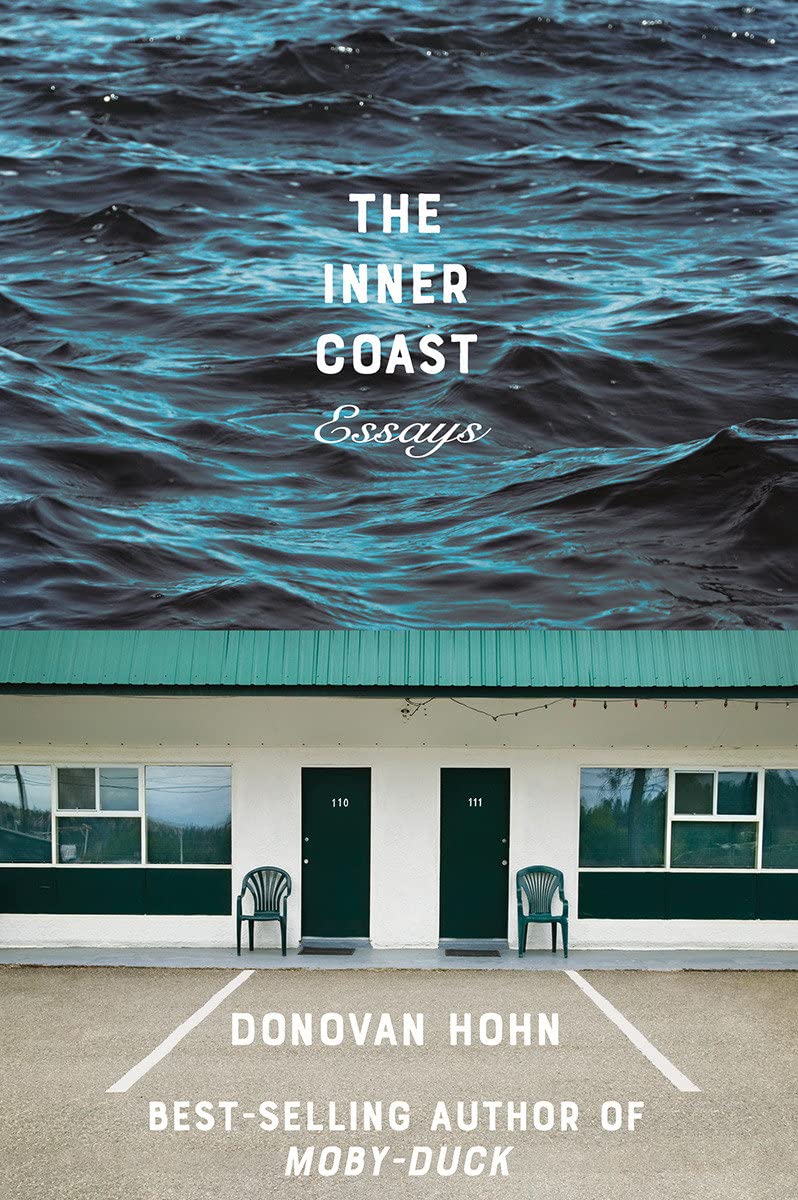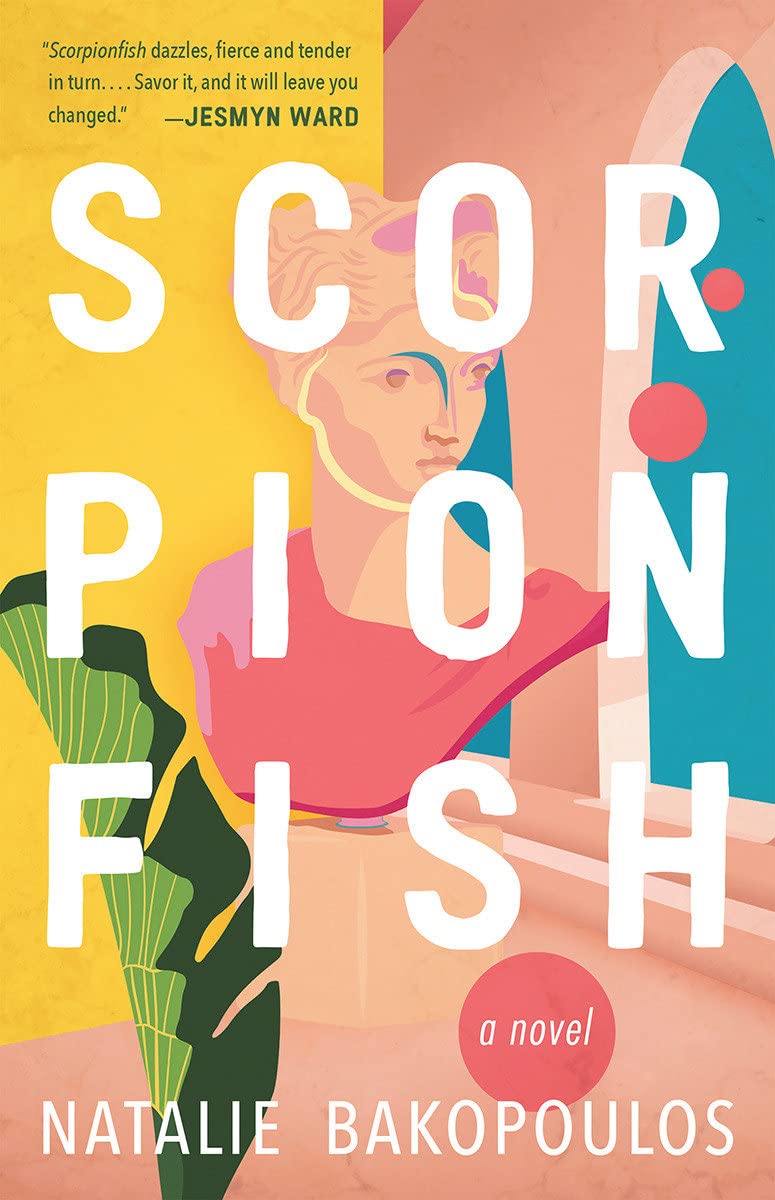Interview with Donovan Hohn and Natalie Bakopoulos
With 2020 drawing to a close and the global pandemic soon approaching a year of existence, it is safe to say that almost everyone has had to make some major changes to their personal, social and work lives. COVID-19 flipped us on our heads and we had to discover new ways to go about our days.
 These realities hold true for everyone, and this is no exception for Professors Donovan Hohn and Natalie Bakopoulos. Hohn, Wayne State University creative writing professor, former senior editor of Harper's Magazine, and author of New York Times notable book Moby-Duck: The True Story of 28,800 Bath Toys Lost at Sea, released his most recent book, "The Inner Coast: Essays," this past June.
These realities hold true for everyone, and this is no exception for Professors Donovan Hohn and Natalie Bakopoulos. Hohn, Wayne State University creative writing professor, former senior editor of Harper's Magazine, and author of New York Times notable book Moby-Duck: The True Story of 28,800 Bath Toys Lost at Sea, released his most recent book, "The Inner Coast: Essays," this past June.
Bakopoulos, Wayne State University assistant professor, Writing Workshops in Greece faculty member, Fiction Writers Review contributing editor, and author of The Green Shore, released her most current novel, Scorpionfish, this past July.
While faculty here at Wayne State, as commercially published writers, these two are familiar with the ins and outs of the literary world beyond academia. Authors rely on social events to promote their new releases, yet due to the current state of the world, they have had to adapt to online formats like everyone else. To get a firsthand look at these unique experiences, we spoke with Hohn and Bakopoulos about their COVID-era online book launches.
"[We] had to reinvent the book event," Donovan said over the slight delay of our Zoom call. He and the event hosts noticed that the usual practice of an author doing a reading for 15 to 20 minutes didn't hold the attention of the virtual audience. Instead, they found the greatest success in co-sponsored events, two authors reading much smaller sections of their latest works and then engaging in a dialogue. While participating in fewer events than originally planned, Donovan felt he "was getting to perform duets with other writers" he admired, including Jordan Kisner, Jeff Sharlet and even colleague Natalie Bakopoulos. On the other hand, Bakopoulos felt that launching a new book wasn't too difficult considering the circumstances. Instead, "The pandemic, and our national response to it, was the difficulty! It's been devastating on so many levels—the loss, the grief, as well as the utter lack of any national coordinated response or plan, or recognition of grief or loss."
 In addition to discussing new logistical challenges, we also spent some time discussing the new releases themselves. Bakopoulos stated that her "work will always have certain preoccupations: exile, borders, and hybridity." However, Scorpionfish also has a major focus on storytelling itself: "how [stories] are told, and to whom, and the way telling a story illuminates some things and sometimes conveniently and sometimes unintentionally leaves out others."
In addition to discussing new logistical challenges, we also spent some time discussing the new releases themselves. Bakopoulos stated that her "work will always have certain preoccupations: exile, borders, and hybridity." However, Scorpionfish also has a major focus on storytelling itself: "how [stories] are told, and to whom, and the way telling a story illuminates some things and sometimes conveniently and sometimes unintentionally leaves out others."
Hohn on the other hand, explained his goals as a creative non-fiction writer concerned with "geographies." Inspired by his new home in Michigan, some of the major themes running through the essays in Inner Coast include "the ways in which places influence our consciousness, our imaginations, the way we imagine them, [as well as] the way natural history and human history can collide, and intermingle in particular places."
Finally, we touched on tips for making time for creative pursuits in our stressful reality. Bakopoulos put a great emphasis on being "gentle with yourselves, and with others. We only get one body, after all. Be kind and compassionate, and don't worry so much about productivity and perfection." Her recommendations included thinking about "the way you work best, and try[ing] to find ways to make space for that.
For some, it's writing for thirty minutes or 500 words or three hours every day; for others, it's in spurts and starts." Hohn echoed similar advice while sharing what helped him, stating that he's "trying to have a more daily practice rather than trying to take on a large project" as well as focusing on work that is "exploratory and occasional." He also suggested maintaining "a practice of drafting and note taking."
When taking a look at these unique circumstances we, as well as all of Wayne State faculty, would like to stress the road bumps faced by these writers pale in comparison to the tragic and heart-wrenching circumstances of 2020. We hope this article can serve as a moment of distraction from these horrific realities and that you can gain insight into aspects of this industry most people aren't familiar with, discover new literature, and learn ways to deal with your own creative pursuits during these trying times.
Jacqueline Kinnaird